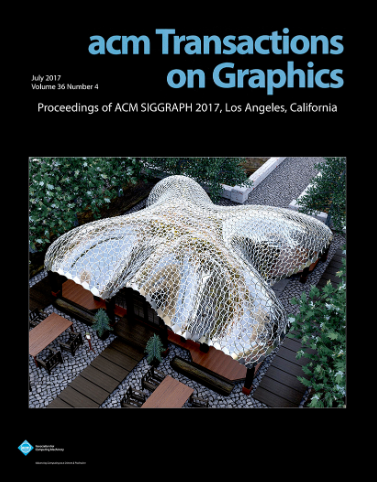DesignManager:一个代理驱动的副驾驶,让设计师将AI设计工具集成到创意工作流程中
IF 9.5
1区 计算机科学
Q1 COMPUTER SCIENCE, SOFTWARE ENGINEERING
引用次数: 0
摘要
创意设计本质上是一个复杂和迭代的过程,其特点是不断探索、评估和改进。虽然生成式人工智能的最新进展在支持特定设计任务方面显示出了巨大的潜力,但在理解这些技术如何增强整体设计过程而不仅仅是孤立的阶段方面仍然存在重大差距。本文介绍了DesignManager,这是一个新颖的人工智能设计支持系统,旨在改变设计师在整个创意工作流程中与人工智能的协作方式。通过对设计师目前使用生成式人工智能的实践进行形成性研究,我们确定了将人工智能整合到创意设计过程中的关键挑战和机遇。基于这些见解,我们开发了DesignManager作为一个交互式副驾驶系统,它提供了基于节点的设计演变可视化,使设计师能够在保持有意义的基于对话的协作的同时跟踪、修改和分支他们的设计过程。该系统提供了两种协作模式:DesignManager-guiding和Designer-guiding。设计师可以与DesignManager进行对话互动,以获得设计灵感和工具建议,并主动推进设计进度。该系统采用代理框架来管理设计过程中出现的解耦上下文信息,促进对设计师需求的深入理解,并提供上下文感知帮助。我们的技术评估验证了上下文解耦和代理框架使用的有效性,而与专家一起进行的开放式用户研究表明,DesignManager成功地支持直观的意图表达、灵活的过程控制和更深层次的创造性表达。这项工作有助于理解人工智能如何从特定任务的工具演变为创意设计过程中的协作伙伴。本文章由计算机程序翻译,如有差异,请以英文原文为准。
DesignManager: An Agent-Powered Copilot for Designers to Integrate AI Design Tools into Creative Workflows
Creative design is an inherently complex and iterative process characterized by continuous exploration, evaluation, and refinement. While recent advances in generative AI have demonstrated remarkable potential in supporting specific design tasks, there remains a critical gap in understanding how these technologies can enhance the holistic design process rather than just isolated stages. This paper introduces DesignManager, a novel AI-powered design support system that aims to transform how designers collaborate with AI throughout their creative workflow. Through a formative study examining designers' current practices with generative AI, we identified key challenges and opportunities in integrating AI into the creative design process. Based on these insights, we developed DesignManager as an interactive copilot system that provides node-based visualization of design evolution, enabling designers to track, modify, and branch their design processes while maintaining meaningful dialogue-based collaboration. The system offers two collaboration modes: DesignManager-guiding and Designer-guiding. Designers can engage in conversational interactions with the DesignManager to obtain design inspiration and tool recommendations, and proactively advance the design progress. The system employs an agent framework to manage decoupled contextual information emerged during the design process, facilitating deep understanding of designers' needs and providing context-aware assistance. Our technical evaluation validated the effectiveness of context decoupling and the use of agent framework, while the open-ended user study with experts demonstrated that DesignManager successfully supports intuitive intention expression, flexible process control, and deeper creative articulation. This work contributes to the understanding of how AI can evolve from task-specific tools to collaborative partners in creative design processes.
求助全文
通过发布文献求助,成功后即可免费获取论文全文。
去求助
来源期刊

ACM Transactions on Graphics
工程技术-计算机:软件工程
CiteScore
14.30
自引率
25.80%
发文量
193
审稿时长
12 months
期刊介绍:
ACM Transactions on Graphics (TOG) is a peer-reviewed scientific journal that aims to disseminate the latest findings of note in the field of computer graphics. It has been published since 1982 by the Association for Computing Machinery. Starting in 2003, all papers accepted for presentation at the annual SIGGRAPH conference are printed in a special summer issue of the journal.
 求助内容:
求助内容: 应助结果提醒方式:
应助结果提醒方式:


